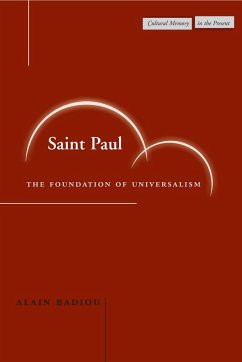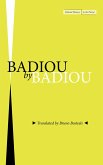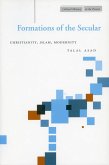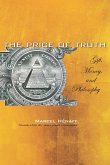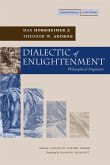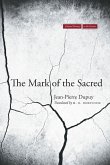In this bold and provocative work, French philosopher Alain Badiou proposes a startling reinterpretation of St. Paul. For Badiou, Paul is neither the venerable saint embalmed by Christian tradition, nor the venomous priest execrated by philosophers like Nietzsche: he is instead a profoundly original and still revolutionary thinker whose invention of Christianity weaves truth and subjectivity together in a way that continues to be relevant for us today. In this work, Badiou argues that Paul delineates a new figure of the subject: the bearer of a universal truth that simultaneously shatters the strictures of Judaic Law and the conventions of the Greek Logos. Badiou shows that the Pauline figure of the subject still harbors a genuinely revolutionary potential today: the subject is that which refuses to submit to the order of the world as we know it and struggles for a new one instead.
This book revisits and revises some of the most basic concepts of time in the Judeo-Christian tradition, drawing on St. Paul's writings to rethink a new kind of radical faith in truth as an event, as the advent of the incalculable, a modality that remakes the pairing religious/secular.
Hinweis: Dieser Artikel kann nur an eine deutsche Lieferadresse ausgeliefert werden.
This book revisits and revises some of the most basic concepts of time in the Judeo-Christian tradition, drawing on St. Paul's writings to rethink a new kind of radical faith in truth as an event, as the advent of the incalculable, a modality that remakes the pairing religious/secular.
Hinweis: Dieser Artikel kann nur an eine deutsche Lieferadresse ausgeliefert werden.

